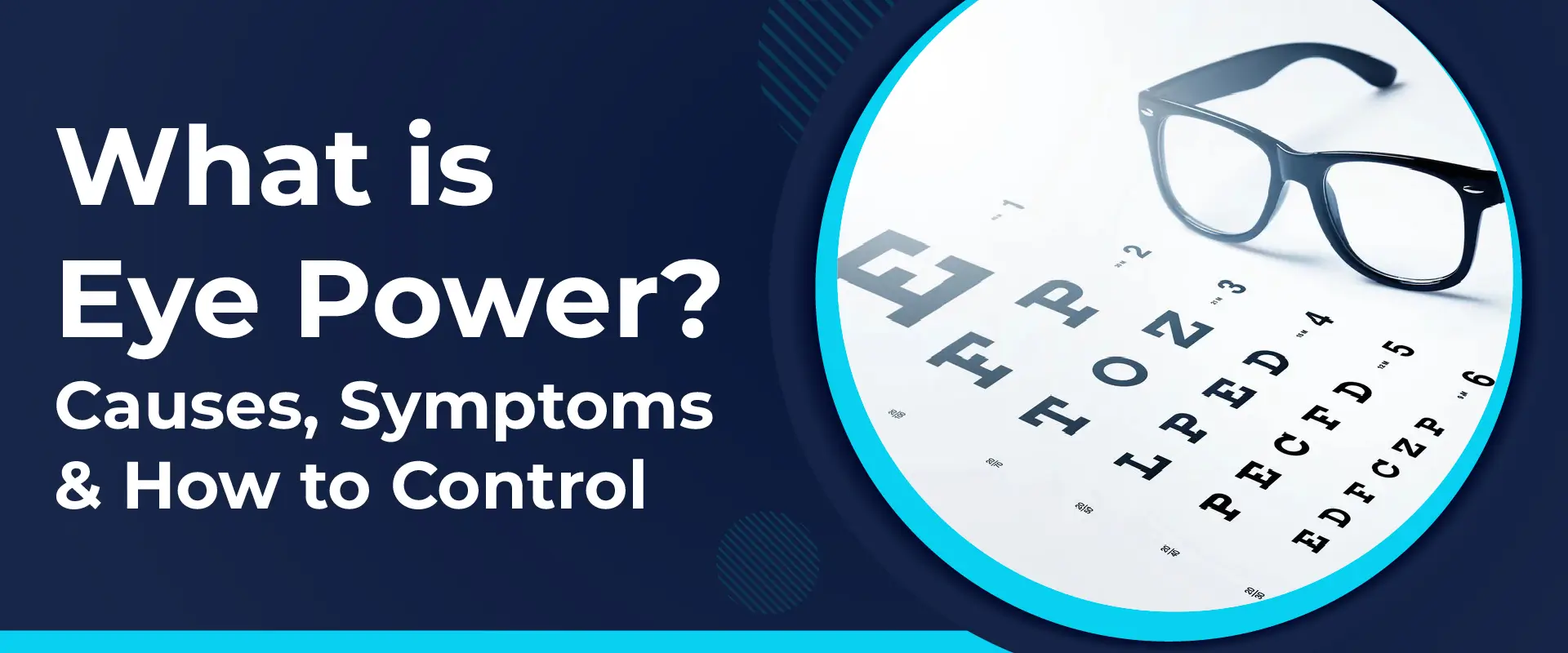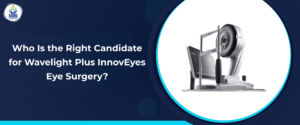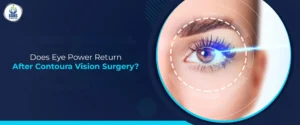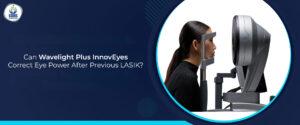Eye health is of paramount importance to everyone. However, many individuals experience vision issues as they have eye power.
Read more on:
ToggleWhat is Eye Power?
Eye power, also called refractive error or visual acuity, is a measure of your eyes’ ability to focus on objects at different distances. The measurement unit for eye power is dioptres (D), which gives the specific degree of correction required. It lets you know the strength of the lenses you need for vision correction, so that you can see clearly.
Eye Power Causes: The Basics
Various factors lead to individuals experiencing eye power changes, which often results in declining vision. It is essential to understand these factors so that you can take steps to slow down the increase in eye power and maintain good eye health.
The prominent among the causes for weakening eyesight are family history, lifestyle, environmental aspects, and extensive exposure to screen.
Why Does Eye Power Increase?
Family History
It is one of the predominant eye power increase causes. If both parents have high myopia (nearsightedness) or hyperopia (farsightedness), probability is that their offspring(s) will also have declining vision as they grow.
Prolonged Screen Exposure
Using screens – computers, laptops, mobiles – for long durations without any breaks often causes eye strain and fatigue. Over time, it may significantly contribute to an increase in eye power, especially in kids and youth.
Poor Lighting Conditions
Eyes have to work harder when you read or work in dim light. This may increase strain and cause deterioration of vision.
Lack of Natural Light Exposure
Natural light is a key factor in maintaining optimal eye health. These days, children tend to spend too much time indoors and too little time outdoors. This makes them vulnerable to eye power increase (myopia).
Improper Diet
Nutritional deficiencies can have an adverse impact on eye health. A lack of Vitamin A, C, E, Omega-3 fatty acids, and antioxidants in food you eat can lead to an increase in eye power.
Uncorrected Vision Issues
Not wearing eye glasses for vision correction or wearing those with incorrect prescription can also cause a decline in eye power.
Age-Induced Presbyopia
As we reach our forties, eye muscles tend to become weak and the lens of our eye loses flexibility, leading to problems with close vision (presbyopia). As a result, reading glasses are needed for near tasks.
What are the Results of Eye Power Increase?
Increase in eye power indicates worsening of vision. It means light entering the eye is not able to focus properly on the retina, resulting in blurred vision. Here are the most common refractive errors:
- Myopia (Nearsightedness – Close vision is fine but distant vision is faulty)
- Hyperopia (Farsightedness – Distant vision is fine but close vision is problematic)
- Astigmatism (Both close and distant vision are blurry)
- Presbyopia (Age-induced decline in close vision)
Eye Power Increase Symptoms
How to know if your eye power is increasing? Watch out if you answer in the affirmative for any of the following signs of worsening eye power (or refractive error):
- Do you often experience eye strain?
- Do you have frequent headaches?
- Have there been sudden changes in how clearly you see?
- Do you find it hard to focus despite wearing glasses?
- Do you experience double vision?
- Do images look distorted?
- Have your eyes lately become sensitive to light?
How to Control Eye Power Increase?
It may not be possible to stop eye power from increasing but you can slow down the progression by adopting a healthy lifestyle. Here are some ways:
Limit Screen Time
While using any screen, make it a point to follow the 20-20-20 rule – every 20 minutes, look at something 20 feet away for 20 seconds. The miniscule break can substantially help reduce the effect of digital eye strain – one of the major eye power increase causes.
Encourage Outdoor Activity
Parents must ensure that their children spend at least 1-2 hours in natural daylight every day. It is an effective eye power increase prevention strategy for kids.
Ensure Proper Lighting and Posture
The screen should be at an arm’s distance from you and at your eye level. The place should be well-lit so that you do not have to strain your eyes. Also, you should maintain proper posture when you read or work.
Use Prescription Eyewear
Wearing corrective eyewear like spectacles or contact lenses helps ensure that eyes are comfortable and do not have to strain. This may keep eye power stable.
Balanced Diet
Make sure you include food items that support eye health in your diet. It can help slow down eye power increase. Here are some examples of nutrient-rich foods:
- 𝐕𝐢𝐭𝐚𝐦𝐢𝐧 𝐀 – carrots, sweet potatoes, papaya, apricots, muskmelon
- 𝐕𝐢𝐭𝐚𝐦𝐢𝐧 𝐄 – almonds, sunflower seeds, pumpkin, peanuts, mango
- 𝐕𝐢𝐭𝐚𝐦𝐢𝐧 𝐂 – oranges, lemons, peaches, red bell peppers, tomatoes, strawberries
- Omega-3 – walnuts, flax seed, broccoli, chia seeds, soybean, tofu
- Anti-oxidants – leafy green vegetables, berries, nuts, seeds, whole grains
Regular Eye Examinations
Getting regular eye check-ups helps to timely detect and manage eye power causes. This is a crucial measure that can help maintain good eye health and slow down eye power progression.
Does Eye Power Increase with Age?
This is a very frequently asked question. It primarily depends on your age and habits:
| Age | Changes in Eye Power |
| Kids and Teenagers | Myopia may rapidly progress due to prolonged screen time and little or no exposure to natural daylight. |
| Adults | Eye power generally becomes stable, but there may be minor increases due to lifestyle. |
| After 40 | Presbyopia may set in, affecting close vision. |
| Elderly people | Age-related eye conditions like cataract may start affecting eyewear prescription. |
What to Do If Eye Power Increases?
If you notice changes in eye power, it is vital to act in order to manage or treat the issue.
Visit an Eye Specialist
It is advised to get a complete eye examination to find out the cause and the best management or treatment strategy. People with any eye issues or at risk of eye conditions should preferably get their eyes tested at least once a year.
Change Glasses
If your eye doctor detects a rise in your eye power or refractive error, you may require new specs or contacts with the changed (or updated) prescription.
Get Refractive Surgery
Hate wearing specs? You can benefit from advanced refractive surgery options. Some examples are Smile Pro, Contoura Gold, Wavelight Plus InnovEyes, ICL, RLE, etc. These modern eye technologies enable you to get freedom from specs – seamlessly. They are quick and pain-free with fast recovery. Most patients recount getting clear vision within 24 hours.
Manage Underlying Health Issues
If your underlying health conditions are the reason behind your eye power increase, it is essential to address them.
Get Regular Eye Examinations
People of all ages should get comprehensive eye checkups in routine. Most adults (aged 18-40) without any eye or health condition should ideally get a complete dilated eye checkup every 1-2 years. For those below 18 and above 40, annual eye checkups are recommended. Those with some eye or health condition are also advised to get comprehensive eye examinations every year. This helps detect eye issues early on, to effectively manage eye power before it worsens.
Worried about your eye power? Why not visit Sohana Eye Hospital? Get your eyes checked by trusted eye specialists with years of experience. Also, the hospital offers the most advanced diagnostic and treatment facilities for its patients.
FAQs
1. How to decrease eye power?
Once your eyesight becomes weak and you get eye power, it can be decreased or actually brought to 6/6 vision only through refractive eye surgeries. Apart from that, there are ways that can help stabilise eye power but not decrease it.
2. Can we reduce eye power naturally?
It is often not possible to reduce refractive error (eye power) with natural remedies and exercises. However, adopting healthy habits, consuming a balanced diet, and doing eye exercises can help stop the progression of eye power.
3. What is normal eye power?
Eye power is measured in diopters (D), and normal eye power is 0.00 diopters (D). It means you have no refractive error and your vision is clear without any prescription eye wear. In other words, you have 6/6 vision – which is considered normal vision. It shows you can see clearly at a distance of 6 metres – the accepted parameter for normal vision.
4. Can stress lead to eye power increase?
Yes, persistent stress over a long time can result in eye strain and temporary fluctuations in vision. If not taken care of, it can worsen eye power.
5. If I wear eye glasses, will it worsen eye power?
No. It’s actually the other way round. If you wear spectacles with the right prescription, it will help prevent strain so that your eye power does not worsen.





